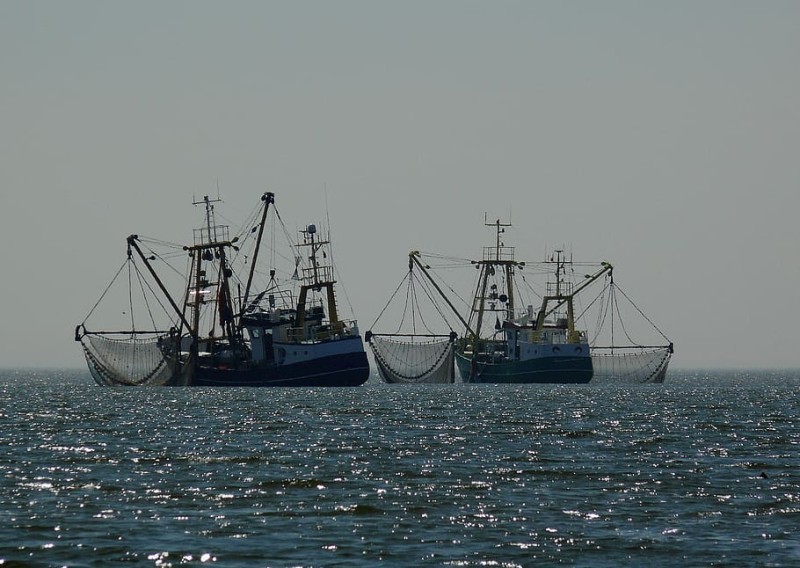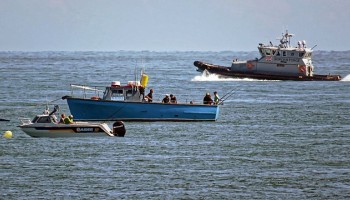“Illegal, unreported, and unregulated (IUU) fishing and related harmful fishing practices are among the greatest threats to ocean health and are significant causes of global overfishing, contributing to the collapse or decline of fisheries that are critical to the economic growth, food systems, and ecosystems of numerous countries around the world,” President Biden wrote.
Currently, IUU fishing represents as much as one fifth of the world's catch, and spawns networks of organized crime both at sea and on land.
One purveyor of IUU fishing has gained the world’s attention, however.
China’s distant water fishing fleet – sometimes called the ‘Dark Fleet’ for its habit of turning off AIS tracking systems - is 17,000 ships strong and is the largest in the world. It has been plundering the world’s oceans to feed China's bulging population. The fleet has been caught with numerous cases of forced labor as well as fishing on the edges of the protected waters, such as the area around the Galapagos Islands.
“Distant water fishing vessels, which engage in industrial-scale fishing operations on the high seas and in waters under other states’ jurisdictions, can be significant perpetrators of IUU fishing and related harmful fishing practices,” the President said, noting that IUU fishing often involves forced labor and other crimes.
“Left unchecked, IUU fishing and associated labor abuses undermine U.S. economic competitiveness, national security, fishery sustainability, and the livelihoods and human rights of fishers around the world and will exacerbate the environmental and socioeconomic effects of climate change,” he warned.
According to Katherine Tai, the United States’s Trade Representative, IUU fishing costs the U.S. fishers as much as $60 million a year.
“And one of the biggest threats when it comes to IUU fishing we know comes from China, which extensively subsidizes its fishery sector to gain an advantage that is really very unfair,” Tai said, the Alaska News Source Reported.
In his memorandum, President Biden tasked Tai along with leaders from the Dept. homeland security to the National Oceanic and Atmospheric Administration (NOAA) with working to cut down on the scourge of Illegal fishing.
NOAA announced that it will be introducing new measures that will allow it to expand the scope of its investigations into IUU fishing, including fishing in other nations territorial waters even without the cooperation of the violated nations.
“The proposed change to the definition of IUU fishing when implementing this Act will widen the scope of activities we can consider and provide us with the authority to address additional issues,” said Alexa Cole, Director of NOAA Fisheries Office of International Affairs, Trade, and Commerce.






